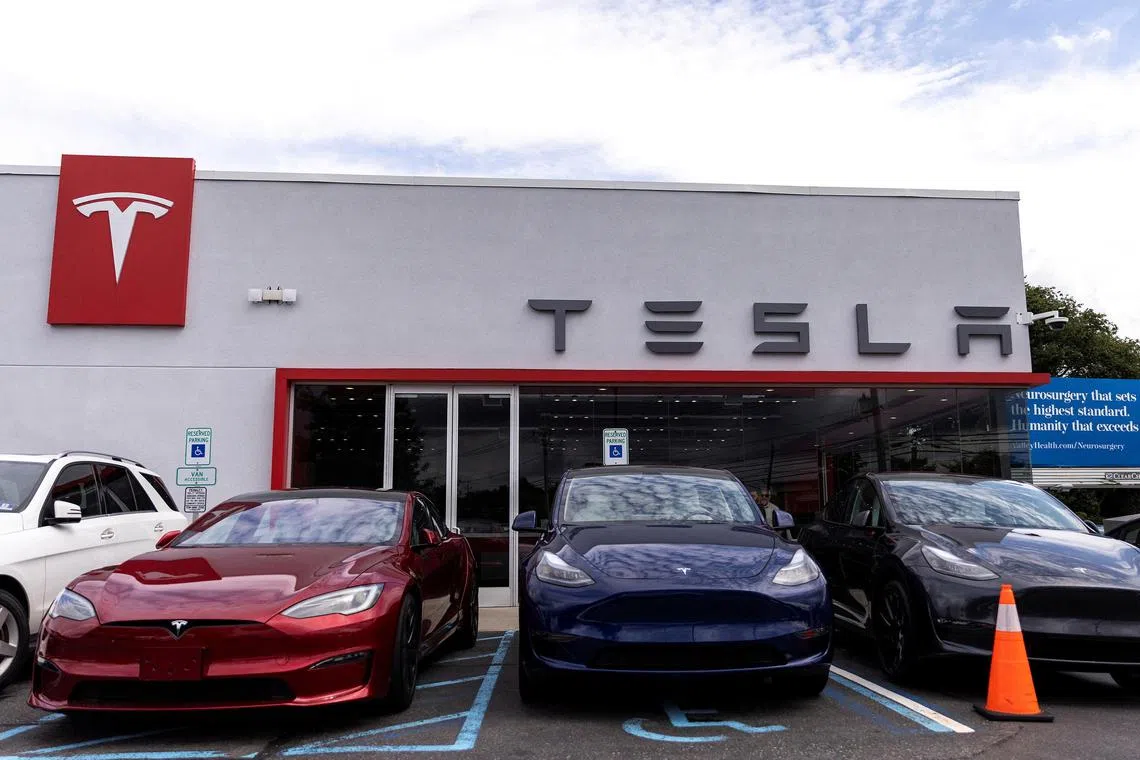US agency to ease some safety rules for self-driving vehicles
Sign up now: Get ST's newsletters delivered to your inbox

The announcement by the US Department of Transportation comes as Tesla CEO Elon Musk has repeatedly pledged to launch commercial robotaxi operations soon.
PHOTO: REUTERS
WASHINGTON – The Trump administration said on April 24 that it aims to speed up deployment of self-driving vehicles by exempting some from certain safety requirements designed for human drivers and easing rules that require the reporting of safety incidents.
US Transportation Secretary Sean Duffy said the new framework to boost autonomous vehicles (AVs) will help US automakers compete with Chinese rivals.
The announcement comes as Tesla chef executive Elon Musk, a close Trump adviser, has repeatedly pledged to launch commercial robotaxi operations soon.
Tesla also faces scrutiny from National Highway Traffic Safety Administration (NHTSA) over its Full Self-Driving software after a fatal crash.
The revised rules will allow some AVs that do not comply with federal safety standards, such as having rear-view mirrors, to operate on US roads.
The rules will also allow carmakers to report less severe crashes monthly, and add a property damage reporting threshold for less severe crashes involving self-driving vehicles.
“This administration understands that we’re in a race with China to out-innovate, and the stakes couldn’t be higher,” Mr Duffy said. “Our new framework will slash red tape.”
As part of the revision, the NHTSA said it will expand a programme to exempt some self-driving vehicles from safety requirements and streamline the reporting of safety incidents for advanced driver assistance and self-driving systems.
Advocates for Highway and Auto Safety said it is disappointed that the US Department of Transportation “chose to dilute, instead of enhance, the reporting requirements”.
The group also raised concerns about the safety exemptions, saying “without safeguards, safety regulations, transparency and accountability, the success of AV deployment is imperilled at best and could result in deadly consequences at worst”.
The Alliance for Automotive Innovation, a trade group representing nearly all major automakers, praised the US Department of Transportation.
The industry has “been hamstrung by government inaction... this announcement shows the administration is also proceeding with a sense of urgency, so we don’t cede AV leadership to China and other countries”, it said.
Automakers have long sought to deploy automated vehicles on US roads that do not comply with federal safety standards. Some of those standards were written with human drivers in mind, like requiring rear-view mirrors or brake pedals.
NHTSA is expanding its Automated Vehicle Exemption Programme to now include domestically produced vehicles.
The programme currently allows companies to operate only non-compliant imported automated vehicles on US roads.
In 2022, General Motors filed a petition with NHTSA seeking permission to deploy up to 2,500 self-driving vehicles annually without human controls such as brake pedals or mirrors.
GM withdrew the petition in 2024 after a lengthy government review had not been completed.
GM said in December 2024 that it will halt funding of its self-driving Cruise robotaxi business after one of its robotaxis seriously injured a pedestrian who had been hit by another vehicle in October 2023 and it had to pay a US$500,000 (S$657,000) criminal fine to resolve a Justice Department probe into the matter. GM had invested more than US$10 billion in Cruise since 2016.
Alphabet’s self-driving unit Waymo said in October 2024 that it has closed a US$5.6 billion funding round as it looks to expand its autonomous ride-hailing service.
In March, Waymo said it aims to launch its fully autonomous ride-hailing service in the US capital city in 2025. REUTERS


